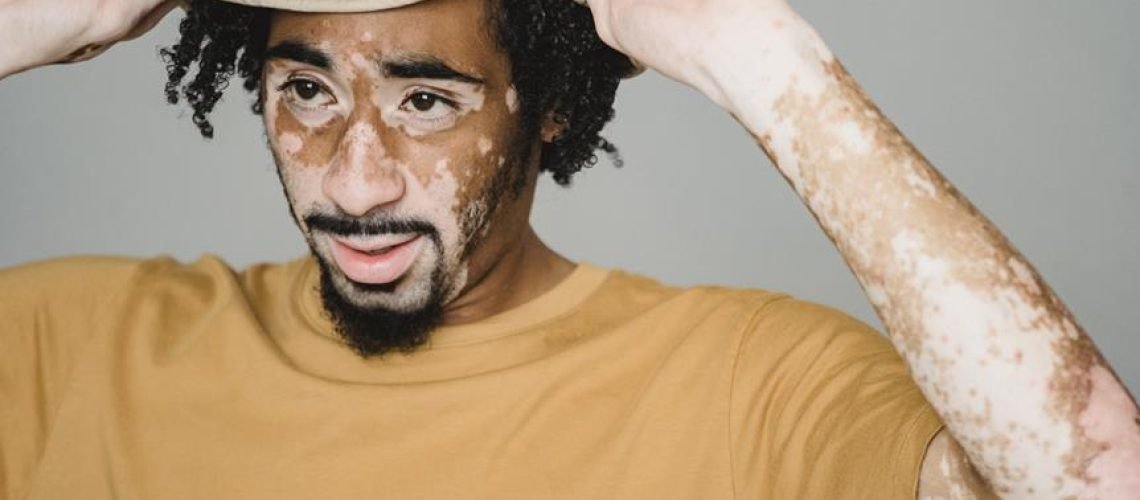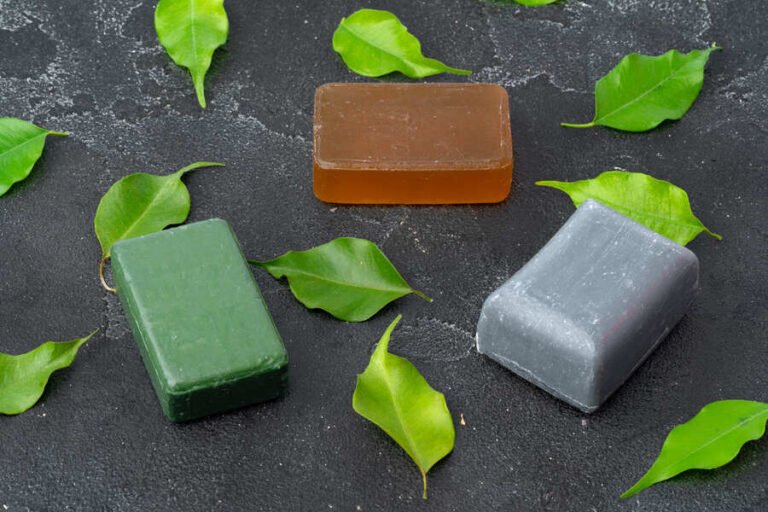Fair skin, like a delicate canvas, holds a unique allure that has captivated cultures throughout history. From its origins rooted in the amount of melanin present to its impact on societal perceptions and health concerns, understanding fair skin is essential.
This article delves into the scientific intricacies of fair skin, explores its cultural and historical significance, and provides valuable insights on care and maintenance.
Join us on this enlightening journey into the world of fair skin, where diversity and liberation reign supreme.
Key Takeaways
- Fair skin is determined by the amount of melanin, with fair-skinned individuals having less melanin compared to darker-skinned individuals.
- Fair skin is more prone to sunburn and skin damage due to its sensitivity to UV rays.
- Fair skin is associated with beauty, privilege, and wealth in some cultures, but beauty standards regarding fair skin can vary across cultures.
- Care and maintenance of fair skin include wearing sunscreen daily, avoiding tanning, moisturizing regularly, and using gentle skincare products formulated for fair skin.
The Science Behind Fair Skin
Exploring the underlying mechanisms, researchers have delved into the science behind fair skin and its correlation with melanin production.
Melanin, a pigment produced by specialized cells called melanocytes, is responsible for determining the color of our skin, hair, and eyes. Genetic factors play a significant role in regulating melanin production, with certain genes influencing the amount and type of melanin produced.
Fair skin is characterized by lower levels of melanin, resulting in a lighter complexion. This decreased melanin production is primarily attributed to genetic variations that affect the activity of melanin-producing genes. Specifically, variations in genes such as MC1R and TYR have been associated with fair skin.
Understanding the genetic factors involved in melanin production can provide insights into the mechanisms underlying fair skin and may contribute to advancements in skin care and dermatology.
Understanding Fair Skin Tones
While fair skin tones can vary in shade and undertone, they are generally characterized by a lighter complexion and lower levels of melanin. Understanding fair skin tones involves considering the genetics of fair skin and the role of melanin in determining its characteristics.
- Genetics of fair skin: Fair skin is commonly seen among people of European descent, as they have a genetic predisposition for lower levels of melanin production. This is due to mutations in genes involved in melanin synthesis, such as MC1R.
- Role of melanin in fair skin: Melanin plays a crucial role in protecting the skin from harmful UV rays. Fair skin, with its lower melanin levels, is more sensitive to the sun's rays and is prone to sunburn and skin damage. This is why it is important for individuals with fair skin to take extra precautions, such as wearing sunscreen with a high SPF and avoiding excessive sun exposure.
Understanding the genetics of fair skin and the role of melanin can help individuals with fair skin make informed decisions about skincare and sun protection, ultimately promoting their overall health and well-being.
Common Characteristics of Fair Skin
Fair skin, characterized by its lighter complexion and lower levels of melanin, exhibits several common characteristics that distinguish it from darker skin tones.
Fair skin color can range from pale ivory to pinkish or peachy hues, and some fair skin tones may have a slight yellow undertone.
Compared to darker skin tones, fair skin lacks pigmentation, making veins more visible on its surface due to its thinness.
Fair skin is also more prone to developing freckles caused by sun exposure and redness, especially with sun exposure or temperature changes.
Additionally, fair skin is more sensitive to the sun's UV rays, making it prone to sunburn and skin damage.
The significance of fair skin in beauty standards can vary across different cultures, and melanin plays a vital role in protecting fair skin from UV rays.
Cultural Perspectives on Fair Skin
Different cultures have diverse viewpoints on the significance of fair skin in terms of beauty and social status. Understanding these cultural perspectives can shed light on the historical and social significance of fair skin. Here are three key points to consider:
- Fair skin in different cultures: Perception and beauty standards
- In some cultures, fair skin is considered a symbol of beauty and desirability. It is associated with purity, elegance, and femininity.
- On the other hand, in some cultures, darker skin tones are preferred and seen as a reflection of strength, vitality, and connection to nature.
- Beauty standards regarding fair skin can vary greatly across cultures, highlighting the subjective nature of beauty.
- Historical significance of fair skin: Privilege and social status
- In many societies, fair skin was historically associated with privilege and social status. It was believed to be a sign of wealth and leisure, as fair-skinned individuals were less likely to engage in outdoor labor.
- Colonialism and imperialism further reinforced the idea that fair skin was superior, as it was associated with the ruling class and European standards of beauty.
- These historical associations have had a lasting impact on societal perceptions of fair skin and continue to influence beauty standards today.
Understanding the cultural and historical perspectives on fair skin helps us recognize the diversity of beauty standards and challenges the notion that fair skin is universally desirable. It is essential to embrace and celebrate all skin tones, promoting inclusivity and liberation from narrow beauty ideals.
Maintaining and Protecting Fair Skin
Proper skincare is crucial for the preservation and safeguarding of fair skin.
One of the most important steps in skincare for fair skin is the regular use of sunscreen. Sunscreen is essential for protecting fair skin from the harmful effects of UV rays, which can lead to sunburn, premature aging, and an increased risk of skin cancer. When choosing a sunscreen, it is important to opt for one with at least SPF 30 and broad-spectrum protection to shield against both UVA and UVB rays.
Additionally, skincare products formulated specifically for fair skin can help maintain its delicate balance. These products should be gentle and non-irritating, avoiding harsh substances like sulfates, alcohol, and fragrances.
Regular moisturization is also important to prevent dryness and maintain the skin's natural barrier.
The Impact of Skin Tone on Self-Image
Skin tone can significantly influence an individual's perception of themselves, as well as their overall self-image. The negative effects and psychological impact of skin tone on self-image are profound and can lead to various consequences. Here are three important points to consider:
- Internalized beauty standards: Society often promotes lighter skin tones as more desirable and associated with beauty. This can create feelings of inadequacy and lower self-esteem among individuals with darker skin tones.
- Colorism and discrimination: Colorism, discrimination based on skin color, can cause individuals to face prejudice and bias. This can lead to body image issues, low self-confidence, and even mental health problems.
- Medical conditions and health concerns: Fair skin may be a risk factor for skin cancer and age spots. Additionally, individuals with fair skin may be more prone to medical conditions such as albinism or vitiligo, as well as skin conditions like eczema, psoriasis, and rosacea.
It is important to challenge societal beauty standards and promote self-acceptance and liberation from the negative impact of skin tone on self-image.
Health Concerns Related to Fair Skin
Fair skin is more susceptible to sun damage and at a higher risk for skin cancer due to its lack of melanin. Melanin is a pigment that provides natural protection against harmful UV rays. Without sufficient melanin, fair-skinned individuals have less natural protection, making them more vulnerable to the risks of sunburn, skin cancer, and sensitivity to UV rays.
Exposure to UV rays can cause sunburn, premature aging, and an increased risk of developing skin cancer, including melanoma. Fair-skinned individuals often have a lower tolerance to the sun's rays, meaning they can burn more easily and quickly than those with darker skin tones.
To protect fair skin from these health concerns, it is essential to take preventive measures. Regular use of sunscreen with a minimum SPF of 30 is recommended, along with seeking shade during peak sun hours and wearing protective clothing like wide-brimmed hats and sunglasses.
Additionally, fair-skinned individuals should regularly monitor their skin for any changes, such as new moles, growths, or changes in existing ones. Early detection and timely treatment are crucial in reducing the risk of skin cancer and ensuring overall skin health.
Embracing Diversity in Skin Tones
With an increasing focus on inclusivity and representation, society is beginning to recognize and celebrate the diversity of skin tones. Embracing diversity in skin tones is essential for promoting inclusivity and challenging narrow beauty standards. Here are three reasons why skin tone inclusivity and celebrating individual beauty are important:
- Breaking Beauty Stereotypes:
Embracing diverse skin tones challenges the notion that beauty is confined to a specific standard. By celebrating individual beauty, society can break free from the limited ideals that have perpetuated unrealistic beauty standards for years.
- Boosting Self-Confidence:
When individuals see their unique skin tones being celebrated, it can boost their self-confidence and self-esteem. Embracing diversity helps people feel proud of their skin and encourages them to embrace their natural beauty.
- Promoting Equality:
Skin tone inclusivity is a step towards promoting equality and dismantling colorism. By recognizing and celebrating the beauty in all skin tones, we can work towards creating a society where everyone is valued and respected, regardless of their appearance.
Frequently Asked Questions
What Are Some Beauty Standards Regarding Fair Skin in Different Cultures?
Beauty standards regarding fair skin vary across cultures, with some associating it with beauty, privilege, and wealth, while others value darker skin tones. These societal perceptions can impact individuals' self-esteem and body image.
Are There Any Historical Reasons Why Fair Skin Is Associated With Beauty and Privilege?
Historical origins of fair skin's association with beauty and privilege can be attributed to colonialism, where lighter skin was seen as a sign of superiority. These societal implications have perpetuated colorism and its consequences in various cultures.
How Does Fair Skin Differ in Terms of Sensitivity to the Sun's UV Rays Compared to Darker Skin Tones?
Fair skin is more sensitive to the sun's UV rays compared to darker skin tones, resulting in a higher risk of sunburn and skin cancer. This sensitivity is due to fair skin having less melanin, which provides natural protection against UV radiation.
Can Fair Skin Be a Sign of Underlying Medical Conditions?
Yes, fair skin can be a sign of underlying medical conditions. It is more prone to conditions like albinism, vitiligo, eczema, psoriasis, and rosacea. Understanding fair skin sensitivity and exploring fair skin health risks is crucial for proper care.
What Are Some Common Skin Care Products and Ingredients That Should Be Avoided for Fair Skin?
When it comes to fair skin, it is important to avoid skincare products with harsh substances like sulfates, alcohol, and fragrances. These ingredients can cause irritation and dryness, which fair skin is more prone to. Opt for gentle, non-irritating skincare formulations specifically designed for fair skin.
Conclusion
In conclusion, fair skin is a unique characteristic influenced by the amount of melanin present in the skin. It is commonly observed among individuals of European descent and can vary in tones from pale ivory to pinkish or peachy hues. Fair skin is susceptible to sun damage and may display visible veins and freckles. Cultural perspectives on fair skin can vary, and maintaining and protecting fair skin is crucial for health reasons.
Embracing diversity in skin tones is important for promoting inclusivity and understanding.
One interesting statistic is that fair-skinned individuals have a higher risk of developing skin cancer due to their reduced melanin levels and increased sensitivity to UV rays.







